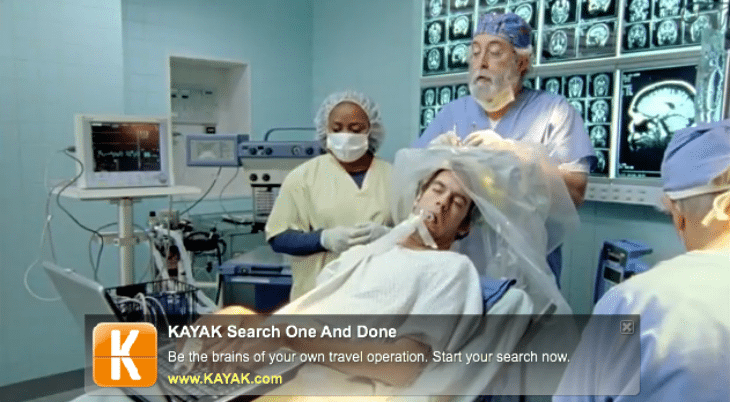Kayak Brings Back Advertisement Banned in the UK

Skift Take
Damn, if the UK's Advertising Standards Authority can't take a joke … Meanwhile, Kayak's Brain Surgery ad is obviously working and that's why the company brought it back.
Kayak's decision didn't take brain surgery -- or maybe it did.
The Connecticut-headquartered travel metasearch company has once again started airing in the U.S. its Brain Surgery advertisement (embedded below) that was banned in the U.K. starting last year.
In the ad, a surgeon conducts brain surgery on a patient and manipulates his brain so the patient taps keys on a laptop and searches various travel site

